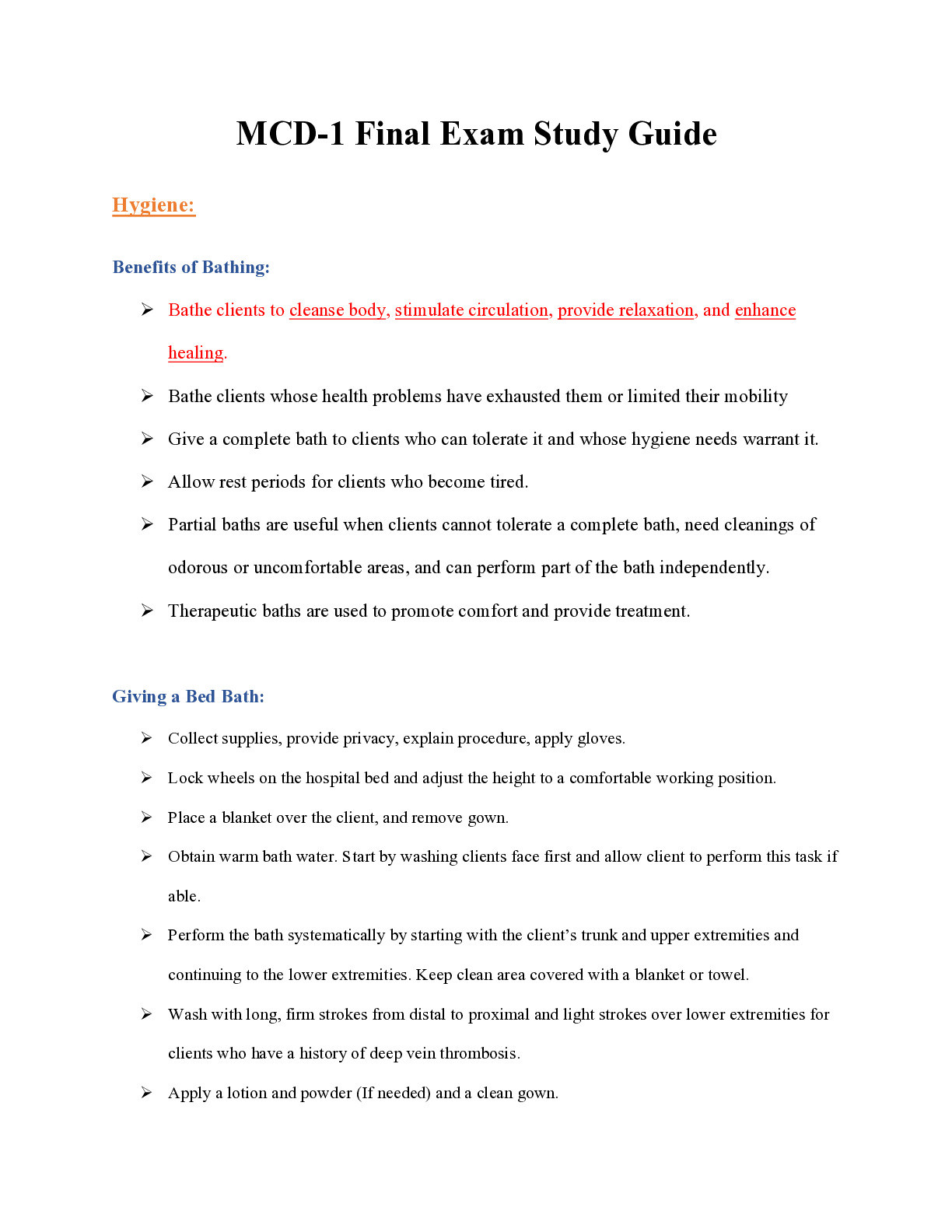Hygiene:
Benefits of Bathing:
Ø Bathe clients to cleanse body, stimulate circulation, provide relaxation, and enhance
healing.
Ø Bathe clients whose health problems have exhausted them or limited their mobility
Ø Give a complete bath to clients who can tolerate it and whose hygiene needs warrant it.
Ø Allow rest periods for clients who become tired.
Ø Partial baths are useful when clie
...[Show More]
Hygiene:
Benefits of Bathing:
Ø Bathe clients to cleanse body, stimulate circulation, provide relaxation, and enhance
healing.
Ø Bathe clients whose health problems have exhausted them or limited their mobility
Ø Give a complete bath to clients who can tolerate it and whose hygiene needs warrant it.
Ø Allow rest periods for clients who become tired.
Ø Partial baths are useful when clients cannot tolerate a complete bath, need cleanings of
odorous or uncomfortable areas, and can perform part of the bath independently.
Ø Therapeutic baths are used to promote comfort and provide treatment.
Giving a Bed Bath:
Ø Collect supplies, provide privacy, explain procedure, apply gloves.
Ø Lock wheels on the hospital bed and adjust the height to a comfortable working position.
Ø Place a blanket over the client, and remove gown.
Ø Obtain warm bath water. Start by washing clients face first and allow client to perform this task if
able.
Ø Perform the bath systematically by starting with the client’s trunk and upper extremities and
continuing to the lower extremities. Keep clean area covered with a blanket or towel.
Ø Wash with long, firm strokes from distal to proximal and light strokes over lower extremities for
clients who have a history of deep vein thrombosis.
Ø Apply a lotion and powder (If needed) and a clean gown.
Ø Replace water if he becomes cool, and use fresh water for perineal care.
Ø Document skin assessment, type of bath, and the clients response.
Oral Hygiene:
• Proper oral hygiene helps decrease the risk of infection, especially from the transmission
of pathogens that can cause pneumonia.
• Other populations who require meticulous oral hygiene include those who are seriously
ill, injured, unconscious, dehydrated, and have an altered mental status or limited upper
body movement.
Autonomy for a Client Requiring Oral Care?
• Brush the teeth twice a day.
• Use a soft toothbrush.
• Moisturize oral mucosa and lips every 2 to 4 hours.
• Use a chlorhexidine gluconate (0.12%) rinse twice a day during the perioperative period
for patients who undergo cardiac surgery (adult patients).
• Use mouthwash inside the mouth twice a day for adult patients who are on a ventilator.
• Give the patients the oral supplies.
[Show Less]
